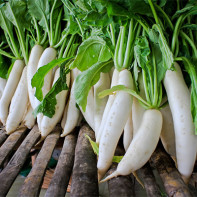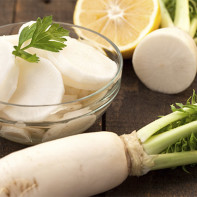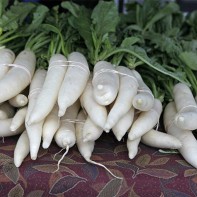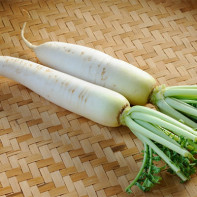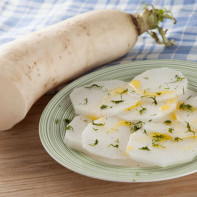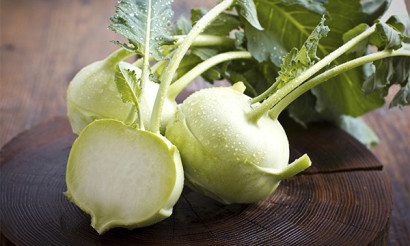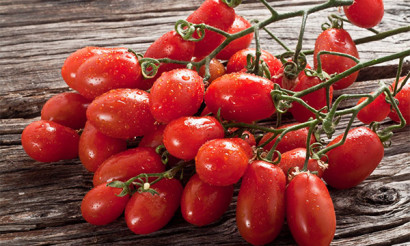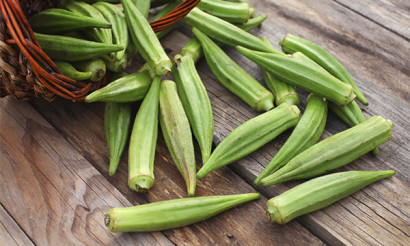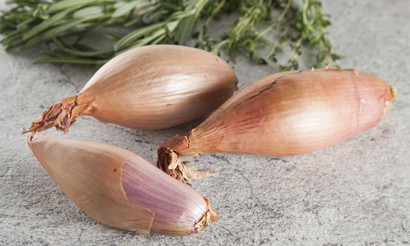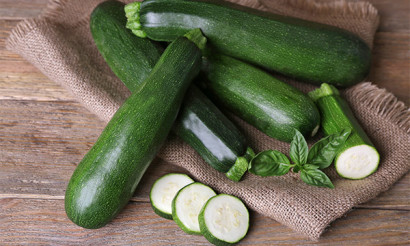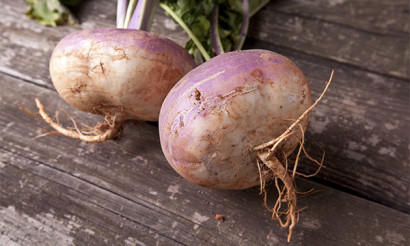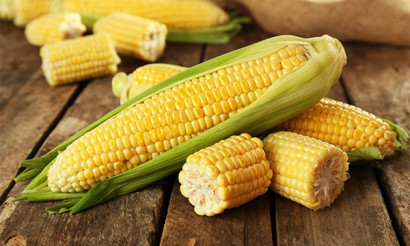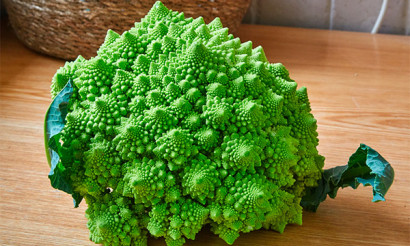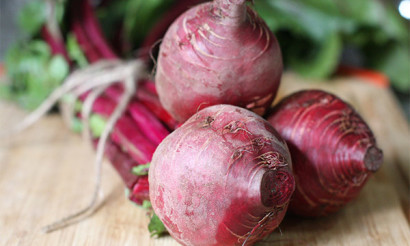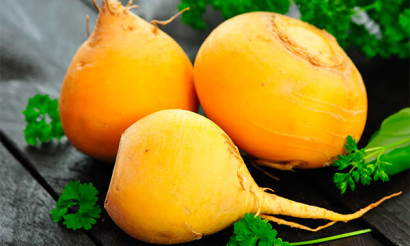Daikon: what is it, useful properties and recipes for cooking
Daikon is very popular in Asian countries, especially in Japan, and this culture has been grown here for about 1000 years. In Japan, a proper approach to the selection of products for regular meals is very important, so the vegetable takes one of the main places in the standard diet. All this is not by chance - daikon is rich in useful substances and at the same time has a very balanced composition.
- What is daikon
- What is the difference between daikon and radish
- Composition and Calories
- Useful properties of daikon
- General benefits
- For Women
- For Men
- In Pregnancy
- Breastfeeding
- For children
- When losing weight
- Daikon in medicine
- Diabetes mellitus
- For pancreatitis
- For gastritis
- If gout
- Daikon in cosmetology
- Hazards and contraindications
- How to choose and store daikon
- What can be cooked from daikon: Recipes
- Salad with chicken and daikon
- Pickled Carrots with Daikon
- Interesting Facts about Daikon
What is daikon
Daikon is a root vegetable that looks like a radish, but it tends to be larger in size. The first to cultivate this crop were the Chinese, but at the moment the leader in cultivation is Japan. The word "daikon" itself translates from Japanese as "big root". Daikon fruits can be very large, for example, some can reach half a meter in length and still weigh more than 5 kilograms. The shape and color of the fruit can also vary, as these parameters depend on the variety. For example, a vegetable that resembles a giant white carrot is called Aokubi, and one that resembles a turnip but has a pink core is referred to the Sakurajima variety.
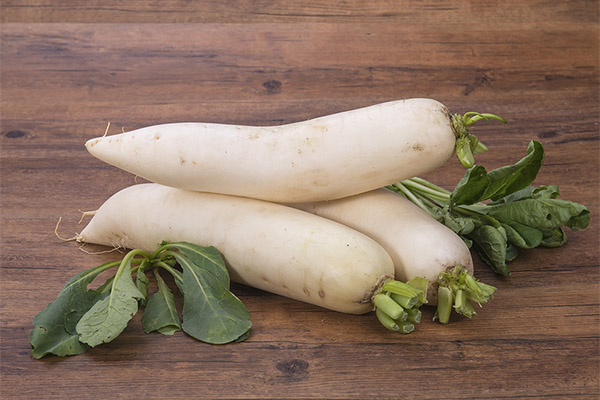
In Eastern European countries, the most common varieties are Terminator and Caesar, where they received simpler and easier-to-understand names - sweet radish and white radish. Daikon is most often eaten in its natural or grinded form. In Eastern countries, the product is pickled, included in salads and used as a garnish to stewed meat or fried fish dishes.
The difference between daikon and radish
Daikon contains a minimum amount of mustard essential oils, so this product is much more delicate and tasty than the radish we are used to. The flesh of the vegetable is crisp and refreshing, with a sweet taste at the top and a spicier taste near the root. Species that have small root vegetables tend to have a milder and sweeter flavor.
Composition and calories
In 100 g of the product contains:
- calories - 21 kcal;
- proteins - 1.2 g
- fats - 0 gr;
- carbohydrates - 4.1 g;
- sugar - 2,5 g;
- Vitamin C - 22 mg;
- folate - 28.0 mcg;
- calcium - 27 mg;
- iron - 0,4 mg;
- magnesium - 16 mg;
- phosphorus - 23 mg;
- potassium - 230 mg;
- copper - 0.1 mg.
The product contains vitamins A, B, H and PP. The vegetable is rich in various minerals, isoronic acid, as well as enzymes that help the body to digest starchy foods.
Useful properties of daikon
General benefits.
- Supports respiratory health. Daikon has antibacterial and antiviral properties, making it a great product for maintaining respiratory and lung health. Infections tend to provoke increased mucus formation, which can enter the airways and make it difficult to breathe. This problem is particularly familiar to asthmatics or people with chronic allergies. Daikon contains bioflavonoids, substances that improve lung function and reduce the frequency of asthma attacks.
- It normalizes digestion. Daikon contains amylase and protease, enzymes that are involved in the process of breaking down carbohydrates and proteins. The vegetable also boasts other enzymes that are responsible for breaking down fats. These factors make the product a great food, especially for people with digestive disorders. Daikon is also rich in fiber, which is extremely useful for maintaining healthy bowel function and preventing constipation. The dietary fiber helps retain water in the feces, which helps the masses pass through the digestive tract more gently.
- Maintains kidney health. The kidneys are responsible for filtering the blood, recirculating water, and getting important nutrients into the bloodstream. Another important function of this organ is the excretion of water-soluble waste products. But the kidneys do not always manage to process enough fluids, so there is a decrease in the filtration rate. In such cases, it is necessary to use external medications, medicines or foods that can promote urination. Daikon is just one of them, because it helps to stimulate diuresis naturally. This relieves the body from accumulating waste in the kidneys and prevents the occurrence of kidney stones.
- Reduces the risk of cancer occurrence and development. Studies have shown that daikon can be used as a preventive product against cancer, especially when it comes to stomach cancer. This product helps to remove so-called nitrosamines, highly carcinogenic molecules that enter the body with smoked foods. It also contains numerous phenolic compounds that increase overall resistance to cancer and reduce the damaging effects of free radicals on cells.
- It strengthens the immune system. Daikon is rich in vitamin C, one of the most effective immune-boosting nutrients. Vitamin C helps the body produce white blood cells and has an antioxidant effect. Oxidation damages DNA and often induces the formation of defective cells, which can eventually develop into malignant cells. With regular consumption of daikon, these harmful effects can be avoided. It can also be noted that the body begins to fight infections more effectively, so the duration of illnesses is shortened and the risk of complications is minimized.
- It helps to maintain blood pressure levels. Daikon contains potassium, a mineral involved in regulating blood pressure and keeping blood vessels healthy. Potassium helps to relax the blood vessels and also helps to remove accumulated water in the body, thereby maintaining normal blood pressure.
- Helps in hematopoiesis. The process of blood formation, development and maturation requires the participation of various vitamins and minerals. Among them are iron and copper, which are exactly contained in daikon, and in optimal quantities for this. This vegetable can also help prevent anemia and increase energy levels by improving the oxygen supply to the cells.
- Supports brain and nervous system health. Nervous system and brain dysfunction are often caused by excessive stress and oxidation. In this case, the body begins to produce substances that destroy brain cells and provoke a decline in cognitive function. One of these compounds is homocysteine. To prevent such conditions, it is recommended to include daikon in your diet. The folate in this vegetable breaks down homocysteine, so it cannot perform its harmful function for the body. Regular consumption of daikon will help meet the body's need for folic acid and reduce the risk of neurodegenerative diseases such as Alzheimer's and Parkinson's disease.
- It has anti-inflammatory properties. The anti-inflammatory compounds that are abundant in the juice of daikon, as well as in the roots and leaves of the plant, help reduce inflammation in the body. The vegetable has a number of positive effects on the body, supports heart health, reduces the risk of arthritis, helps in the treatment of gout, and relieves pain from injuries and muscle sprains.
- Supports bone health. Daikon is an excellent source of calcium. It is essential for bone health because it helps prevent osteoporosis and other bone diseases. Including daikon in your diet will significantly slow down the aging process of bones and help to lead a healthy lifestyle.
- It is good for your skin. Regular consumption of daikon helps to prevent wrinkles and dark spots, improves skin color, and regulates blood circulation.
For women
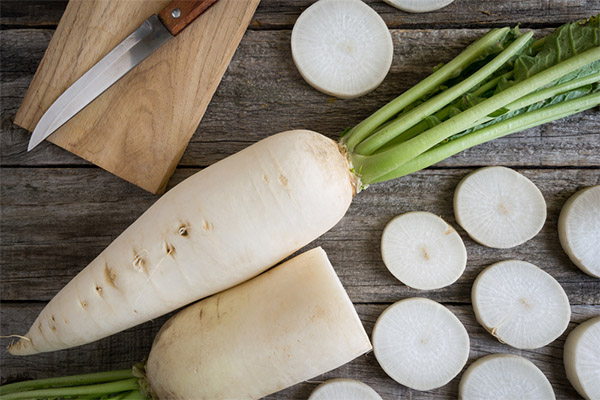
Women are usually concerned not only about their health, but also about their appearance. Daikon is a suitable product to solve both problems. It will help to cope with extra pounds, support the processes associated with the breakdown of fat, as well as cleanse the body of toxins and slags. Specialists recommend to use daikon for women during the menstrual cycle, especially in case of heavy blood loss.
For men
Regular consumption of daikon will greatly improve male potency and have a restorative effect on the body. This product will saturate all the necessary minerals and vitamins, which will have a positive effect on libido. Daikon stimulates blood flow in the genitals, so this vegetable is especially useful for men who work at the computer, or those who spend most of their lives driving a car.
In pregnancy
During pregnancy, women tend to revise the already familiar diet, so you need to be sure that all the products that are on the menu will not do any harm. Daikon is not forbidden to eat for pregnant women, especially in the first stage. The folate in the vegetable is one of the most important nutrients that help ensure a healthy pregnancy.
This product also has diuretic properties, helps to relieve swelling and frees the body from toxins. Minerals help to maintain the overall condition of the expectant mother. But it is also important to note the limitations associated with the use of this product. Daikon can stimulate the activation of smooth muscles, which will lead to an increased risk of termination of pregnancy. Also, sometimes there may be discomfort in the intestines due to excessive gas formation. If you consume a large amount of vegetables, sleep disorders or irritability may occur. Therefore, it is recommended to eat no more than 100 g once every 3-4 days.
When breastfeeding
Nursing mothers are not recommended to include daikon in their diet for at least 2 months after delivery. From 3-4 months of age, the baby's internal organs involved in the digestive process will be able to absorb changes in the composition of the mother's milk normally. Sometimes babies refuse to eat if they feel that the taste has changed. In any case, daikon during breastfeeding will benefit the body of the mother and child. But the product should be introduced in small portions and monitor the reaction of the baby.
For children
Although there is almost no mustard oil in the composition of daikon, it will be difficult for the child's body to digest and assimilate all the fiber that is contained in this vegetable. Fresh product is allowed to include in the children's diet from the age of 3 years. It is necessary to start with small portions.
When losing weight.
Good digestion is the key to effective loss of extra pounds without harming your health. Daikon is an excellent product that will help normalize digestion and contribute to a more effective removal of toxins and impurities from the body. It is also worth noting that this vegetable contains very little cholesterol, carbs and calories, but it is rich in fiber and other nutrients that make it ideal for weight loss. The product contains only 21 kcal, so it can be included in any diet. Fiber well satiates the body, eliminates feelings of hunger, cleanses the intestines, stimulates the digestive system and speeds up the metabolism. However, the use of daikon should be limited in the case of problems with the digestive system.
Daikon in medicine
Daikon is also used in the field of medicine. For example, the roots of this plant are used to make remedies for the treatment of various disorders in the body. The juice and leaves can be used to treat constipation. For faster and more effective healing of purulent wounds, lotions from the pulp of this vegetable will do. It will be enough to grate the fruit and apply it to the damaged area.
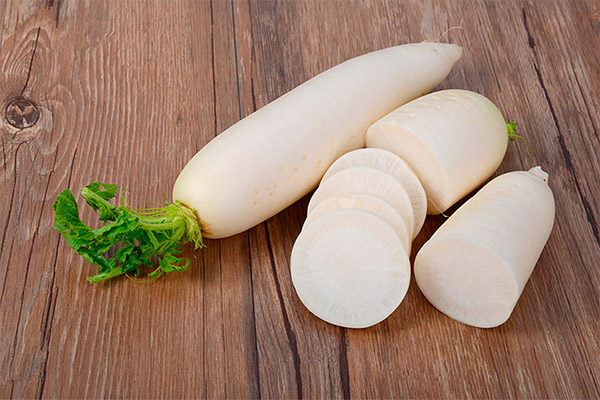
Daikon is also used to get rid of arrhythmia. The product has antibacterial and antiviral properties, so it is sometimes used to treat colds.
For diabetes.
Daikon is allowed to be included in the dietary menu for diabetes, because the vegetable does not contribute to an increase in blood sugar levels. This product has properties that slow the absorption of sugars and maintain insulin stability. The listed factors have a significant impact on the course of the disease and prevent potential complications.
Important: The glycemic index of daikon is 15 units.
In pancreatitis
Experts confidently declare that daikon is unacceptable to eat with pancreatitis. And this applies to all stages of the disease, that is, during remission, and even more so during exacerbation, this product should not be eaten.
With gastritis
During an exacerbation of gastritis, daikon is categorically contraindicated for consumption. But in the transition period of the disease or in the stage of remission, the restrictions are weakened. In this case, it is necessary to take into account the type of gastritis.
With increased acidity, products that stimulate gastric secretion should be excluded from the diet. The group of these products includes daikon, so it should not be added to your menu. However, if the acidity in the stomach is reduced, daikon is allowed to eat, but only in the period of stable remission and in small portions. The patient should monitor his reaction to the product. If after eating any discomfort arose, then it will have to be abandoned.
In gout
Gout results from the accumulation of deposits of uric acid crystals in the soft tissues or joints. Sometimes this unhealthy condition leads to other illnesses, such as arthritis, which manifests as swelling, stiffness, and pain in the joints. Daikon is very low in purines, substances that increase uric acid levels and aggravate the symptoms of gout. Thus, eating foods low in purines can help prevent the condition from getting worse. That said, it's important to understand that daikon cannot serve as a cure or treatment for gout, so you shouldn't use it in place of prescription medications designed for it.
Daikon in cosmetology
In addition to helping to cleanse the body from the inside, daikon is also great for cleansing the skin. In the field of cosmetology, the juice and puree of the vegetable are often used. Depending on the skin type, other ingredients can be used with this product. For example, for oily skin, cucumber juice or aloe, and for dry skin, you can use sour cream or olive oil, which will give additional hydration.
Daikon contributes to the health of the skin for several reasons:
- Vitamins A, K and C and antioxidants found in the vegetable protect the skin from various skin diseases and inflammation, and stimulate cell regeneration.
- Vitamin C, phosphorus and zinc keep the skin fresh for a long period of time.
- The vegetable also contains water, which helps avoid flaky and dry skin.
- Iron is a mineral that strengthens skin, hair and nails.
- Daikon is rich in fiber, which helps eliminate toxins from the body, making skin clearer.
- The vegetable has disinfectant properties, so this product can be used as an effective treatment for insect bites, and it also helps get rid of pimples and acne.
Harms and contraindications
In addition to the benefits, daikon has harmful properties for the human body. Daikon is contraindicated for use by people suffering from diseases of the gastrointestinal tract. The vegetable contains hard-to-digest fiber, which can provoke flatulence and indigestion.
Also, this product should not be eaten with a stomach ulcer or gastritis. In the absence of the above contraindications, you can eat daikon, but only in moderation.
How to choose and store daikon
When choosing daikon, you need to pay attention to the skin, it should be intact and slightly shiny. When pressing the fruit, it should not be too soft, because then the vegetable is probably already flaccid. It is also desirable to see the inside of the fruit, so you should cut it if possible. A quality vegetable has a moist and uniform flesh.
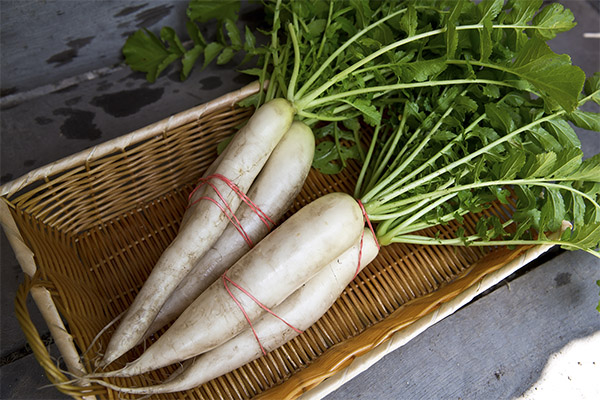
Fresh vegetables are allowed to store both in the refrigerator and in the cellar. The main condition is a minimum amount of light and heat. For storage is suitable crate or box, it is important that the bottom was poured sawdust or sand. This will help the vegetables not to dry out and maintain freshness for a longer time. In these conditions, daikon can be stored for 5-6 months, depending on the variety.
Some varieties are less storable, so they can not retain their properties for more than a month and a half or two months, others, on the contrary, are more durable. If the fruit shows the first signs of rotting, it is already spoiled. If the vegetable is stored in the refrigerator, each fruit should be wrapped in clingfilm and holes should be made in it in order to ensure normal air circulation. This procedure will help to extend the shelf life and avoid air condensation. It is recommended to check the vegetables on a regular basis, too soft and rotten throw away. Sometimes only one part of the fruit is needed for a dish, with the second part left unused. In this case, the remaining half should be wrapped in clingfilm and put back in the refrigerator, in the vegetable compartment.
If there is no possibility to store the product neither in the refrigerator nor in the cellar, you can do it directly on the balcony. The main thing is to cover daikon so that it does not freeze.
What can be cooked from daikon: recipes
There is quite a wide range of dishes, in the composition of which there is a daikon. Juicy fruits can be stewed, pickled, as well as added to soups and salads. Before cooking the vegetable should be washed and remove the edges on both sides. Then the root vegetable is peeled from the skin, and it is important to cut it on the very top, removing a small layer, as it is in the skin contains many useful substances.
Daikon can also be used as a decoration for the table. Despite the fact that daikon is used in different forms, the greatest benefit can be obtained precisely from the raw product. For example, a great snack will come out of the root vegetable chopped on a coarse grater with the addition of lemon juice and herbs.
From this vegetable you can also make a variety of salads. Cabbage, cucumbers, carrots, olives and tomatoes will go well with daikon. It can be included in cottage cheese and cheese dishes, as well as used with meats such as beef and corn. Vegetables are great for desserts, too. They can be mixed with fruit, nuts and honey. It should be taken into account that dishes with sliced daikon fruit should be eaten almost immediately, because their flavor qualities are lost rather quickly.
Salad with chicken and daikon
Ingredients:
- chicken breast - 1 pc;
- daikon - 1 pc;
- tomatoes - 3 pcs;
- Onion (red) - 1 pc;
- garlic - 2 cloves;
- cucumbers - 1 pc;
- lemon - 0,5 pcs;
- yogurt (natural) - 250 g;
- dill.
How to cook:
- Place the chicken breast in boiling water over low heat. Cover with lid and cook for 50-60 minutes. It is better not to remove the skin from the breast and do not remove the bone, as this will give more tenderness to the meat.
- Peel daikon and shred it on a grater (as a carrot in Korean) or cut into julienne. Dice the tomatoes.
- Prepare the dressing for the salad. Grate the cucumber on a coarse grater, add the finely chopped garlic, yogurt, dill and squeeze the lemon juice.
- After the chicken meat has cooled, break it into fibers.
- Mix vegetables with meat, add dressing.
Pickled carrots with daikon
Ingredients:
- water - 1 tbsp;
- vinegar - 0,25 tbsp;
- sugar - 2 tbsp;
- salt - 2 tsp;
- carrots - 250 g;
- daikon - 250 g.
How to cook:
- Cut carrots and daikon into thin straws.
- Put the water to boil, heat until lukewarm.
- Add vinegar, salt and sugar.
- Stir until the sugar has dissolved.
- In prepared jars, place carrots and daikon.
- Pour the marinade into the jars, close them tightly and let stand.
Interesting facts about daikon
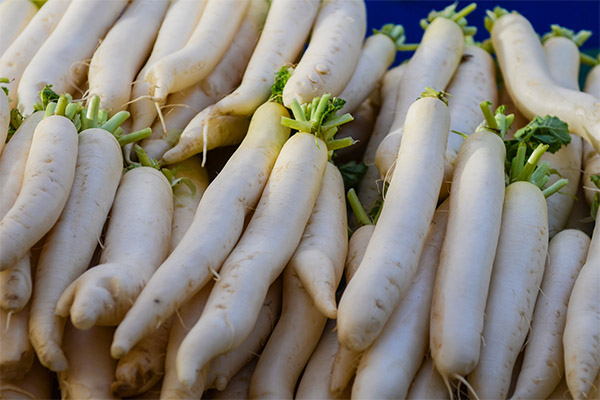
- Daikon is also called "white radish", as well as Chinese or Japanese radishes.
- The most common variety in the world is Aokubi daikon. The fruit is shaped like an oblong thin carrot.
- The most unusual variety of daikon is Sakurajima. The fruits are similar to turnips in shape, and they are quite large and can reach half a meter in diameter and weigh up to 40 kg.
- Daikon is actively used as carving material. The flesh of the fruit is quite dense and has a white color, so it comes out of it excellent crafts and figures.
- The fruit has a more delicate taste, unlike radishes and radishes, so it is considered a more versatile vegetable. The fresh fruit can be eaten alone or together with sour cream, or it can be included in various salads.
- Daikon is usually present in the diet of millions of people living in Asia. For example, daikon cakes are in great demand in China, while in Korea it is used to make kimchi. Japanese cooks serve it raw in various fish dishes, soups, and sushi. In addition, daikon can also be found in traditional Vietnamese and Tibetan cuisine.
- Daikon greens spoil rather quickly, so only those who are directly involved in growing this crop can enjoy it to the fullest.
«Important: All information on this site is provided solely for introductory purposes only. Before applying any recommendations, consult a specialist. specialist before applying any of the recommendations. Neither the editors nor the authors shall be liable for any possible harm caused by materials."

